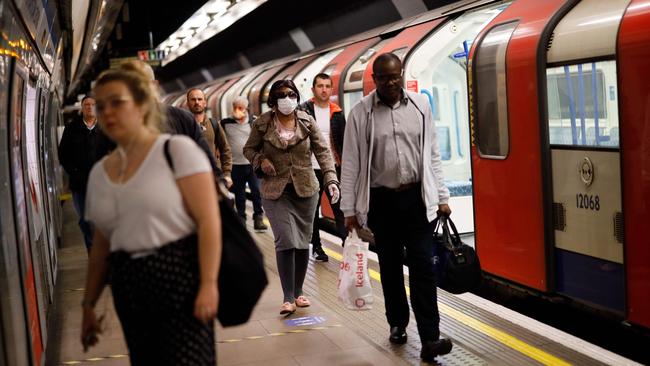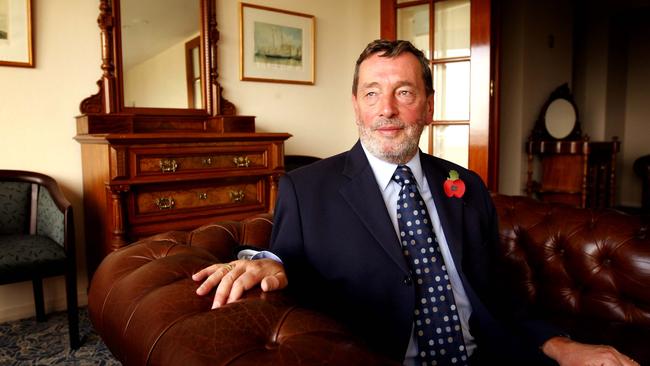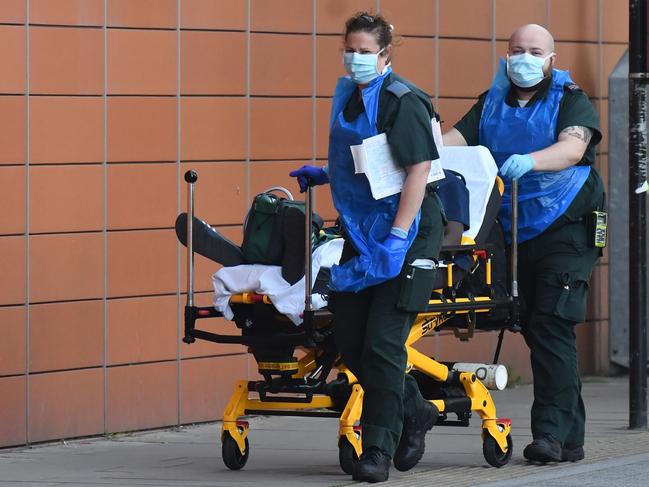Coronavirus: Boris Johnson government plan to ‘indefinitely’ confine over-70s slammed
Boris Johnson government plan to reduce death toll in older citizens labelled as ‘arbitrary incarceration’.

A Boris Johnson government plan to indefinitely confine people over 70 to their homes during the coronavirus pandemic has been labelled “draconian” and “authoritarian”.
Lord David Blunkett, the former Labour home secretary, told the House of Lords that: “Older people must not be subjected to arbitrary incarceration as well as isolation.”
As the British government continues to flounder without any public plan to respond to coronavirus, and deaths slowly decrease, there is heightened anxiety among retirees what the next steps will be.
On Thursday there were 616 deaths announced, taking the total hospital death toll to 18,738, with thousands of other deaths in care homes also believed linked to the virus.
The British government has refused to outline its plans to ease the lockdown after the next review due on May 7, even though there continues to be speculation that people aged over 70 and those with particular vulnerabilities will be ordered to stay in their homes for up to a year when the current 12-week “shielding” operation ends in mid-June.

The Scottish government on Thursday released a paper on how it would deal with relaxing lockdown measures in the future, saying: “Some form of continued shielding to protect those who are most at risk will almost certainly be required as restrictions are lifted.”
Some ministers, including health secretary Matt Hancock, continue to suggest such a doomsday lockdown scenario until a vaccine is developed — when scientists say the odds of any one vaccine being effective are very low.
Overnight (AEST), Mr Hancock said: “To lift measures too soon and risk a second peak would be a mistake … we need to bring incidence right down and then introduce a rigorous program of tests.” He said he wouldn’t announce what the government’s plan was because he didn’t want to “dilute” the message to stay at home.
But Mr Hancock announced a new testing regime that all essential workers could access to see if they have coronavirus.
WATCH: We're making #coronavirus testing faster and simpler. pic.twitter.com/TnWYAlDOkd
— Matt Hancock (@MattHancock) April 23, 2020
Meanwhile, health minister Lord James Bethell refused to renounce speculation that an ageist and discriminatory policy to confine the elderly to their homes — derided by critics as being a mark of authoritarian regimes — was being formulated.
Lord Bethell said: “I cannot hide from the House that this virus is an extremely predatory killer that has in its sights particular demographic groups, including the elderly and in particular those with conditions. It would be wrong of me to mislead the house by pretending that there was an easy way out of this epidemic for those who the disease seeks to attack.”
But Lord Blunkett said age wasn’t a risk factor unless there were other health issues involved and isolating the elderly would lead to further issues down the track.
Lord Blunkett also demanded that the government set up a separate advisory body away from the scientific advisers, SAGE, so that “the dragon that we are slaying in relation to the pandemic will not be replaced by an equal beast — to use a metaphor on St George’s Day — that will lead to substantial additional pressures on the system in years to come, as people who were not feeling aged, isolated or full of distress and anxiety find that they now are”.

He added: “In other words, let us not, with the best intentions of today, make a major problem for tomorrow.”
Professor Thomas Scharf, the President of the British Society of Gerontology, has told the government that using chronological age to decide whether people would be allowed to leave their homes was “simply wrong”.
“It is pure age discrimination, masquerading as ‘scientific advice’ and I believe it is simply wrong,” he said.
“Such policies are normally the mark of authoritarian regimes, not a mature democracy.”
He said age was always a factor in mortality and decisions needed to be based on underlying principles of personal freedoms, informed choices and recognition of individual rights.
In a letter signed by the National Executive Committee of the British Society of Gerontology, Prof Scharf said: “Authoritarian regimes and those who live under such rulers may be used to draconian curbs on their freedoms and family life, but the UK has different values. In a democracy, even in an emergency, people expect to be able to go about their daily lives without unreasonable restraint.”








To join the conversation, please log in. Don't have an account? Register
Join the conversation, you are commenting as Logout